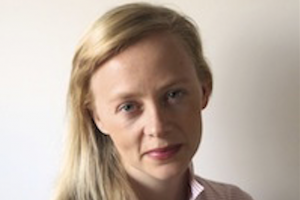
Lisa Kerr graduated from UBC Law in 2005. She is currently completing her doctorate at New York University and is planning to become a law professor. We caught up with Lisa in May 2014 to learn more about her, her research, and her time as a law student at UBC.
What is your research on?
I focus on how law governs the prison. The basic idea at the heart of my work is that a prison sentence includes a qualitative dimension - the actual experience of punishment - that is not adequately controlled by law. When judges impose sentences, the penalties are abstract and idealized, but sentencing courts may know little of the actual conditions to which they are consigning individuals. So, we talk as if courts and legislatures stipulate the punishment that individuals receive. The truth is that the experience of incarceration is largely driven by chance, discretion and individual vulnerabilities. The rule of law has only partially arrived to the prison.
Why did you choose that field?
When I first came to NYU, I took a class on the American death penalty with David Garland, a leading sociologist of punishment who is now my academic supervisor. I was struck by how punishment relates to larger issues, including the history of race relations, religious thinking, individual psychology, and the design of political institutions. Garland was a brilliant teacher, and I was hooked on the topic.
Did you always know you wanted to study law?
No. I started off studying literature and thought I'd be a book editor! I still find a lot of joy and meaning in reading. And the best novels tend to pay attention to my topics: culpability, punishment, and the possibility of personal transformation.
How do you find living in New York?
I love the ambition, the smarts, and the sociability of New Yorkers. Everyone wants to connect. Plus I've always loved crossing against the light, so the city suits me. On the other hand, I struggle with life in the US - a place that, for example, sends women back to work after just three months of (unpaid) maternity leave! I miss the quality of life that far more citizens are able to share in Canada, and I think we need to work hard to retain those egalitarian traditions.
How has UBC Law helped you on the way?
Many folks at UBC have nurtured me, during law school and beyond. Most of all, I have to cite Professor Michael Jackson. The entire history of prison law in Canada is lodged inside of Michael's mind; he is the centre of that history and the preserver of it. Michael brings a spirit of respect and resilience to his ongoing work inside penal institutions. I will never stop learning from his example.
I also have to single out UBC faculty Lynn Smith, Efrat Arbel, Catherine Dauvergne, Emma Cunliffe and Margot Young. Each have delivered advice, good humour and friendship at key moments. I cherish my strong connection to UBC.
What does being a Trudeau Foundation Scholar mean to you?
It's been so expansive. As a Trudeau scholar, you instantly join a network of students and mentors who are shaping issues essential to Canadian identity, including with respect to the environment, Indigenous peoples, foreign policy and human rights. Inclusion in the Trudeau community has made my work feel relevant and important, even at such an early stage of my academic life.
What volunteer work have you done during your doctorate?
I've been privileged to work with Pivot Legal Society on efforts to improve the legal situation faced by sex workers. Pivot works with courageous and compelling clients, including a group known as the "Downtown Eastside Sex Workers United Against Violence." The goal is to end the exclusion of sex workers from basic protections that other Canadians enjoy. The first step has been striking down the criminal laws, but there are more steps to take. I've also worked with the incredible staff at the B.C. Civil Liberties Association, in an effort to reform the law on solitary confinement. Currently, these laws allow modes of punishment that most Canadians would think we left behind in the dark ages. The situation is clearly not Charter-compliant. The BCCLA has achieved important reforms, but again, there is more work to do.
What do you do for fun?
Yoga, psychotherapy, and tons of time with friends. Not only "fun" but also "essential to being alive."
"Essential to being alive." What does that mean?
Law is intellectually and emotionally taxing. Anxiety is common among us, and we often fail to get enough self-care. It's a personal thing what you do to feel healthy, but taking the time to relax, play, investigate - it can be the difference between doing the work with joy and equilibrium, and doing it with stress and dread.
Also, working with prisoners, and with the community that Pivot serves, means coming into contact, at times, with neglect and suffering. It also means coming into contact with very moving instances of resilience and strength. Through these experiences, you encounter and remember your own vulnerabilities and capacities. This all needs to be worked through in some way.
What does the future hold for you? Will you stay in the US or move back to Canada?
I'm planning to come back to Canada to teach law. And I can't wait.
First published on July 30, 2016.